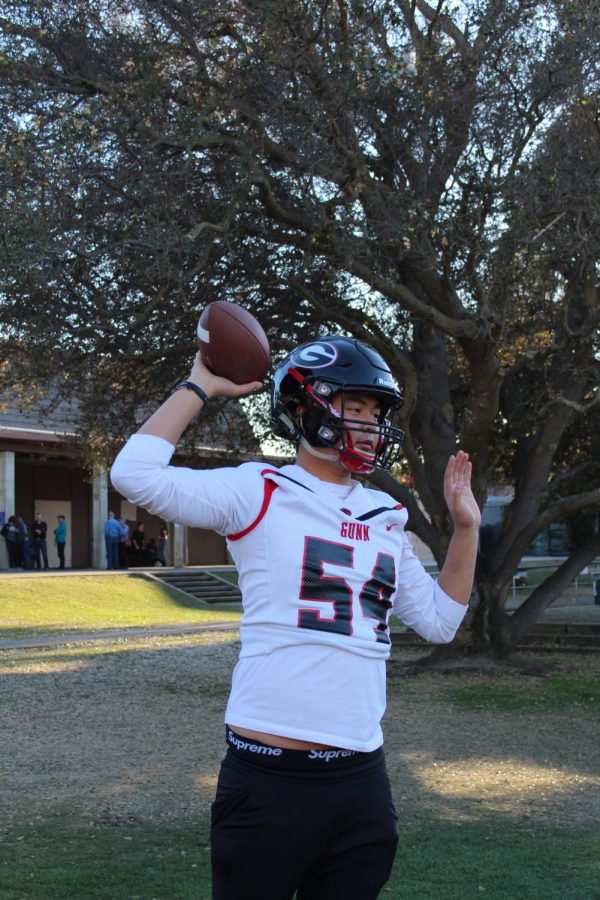The future of football: Tackle
Since 1965, the National Football League (NFL) has been America’s favorite sports league to watch, according to Gallup. Spending much of one’s Sunday watching football games has become a facet of American culture.
In NFL highlight reels, there are scenes of wide receivers making unreal one-handed catches, running backs bulldozing through defenders and linebackers making huge hits on quarterbacks. Recently, a professional American Flag Football League (AFFL) was created. Even the best highlights from this league consist of nothing but mediocre catches and moves from no-name players or washed-up, retired NFL players. This lack of audience engagement demonstrates the vastly superior entertainment value of tackle football.
Additionally, flag football removes some of the “thrill aspect” of tackle football. Tackling is one of the most exciting parts of football, and the physicality of the sport is what differentiates it from other sports. Furthermore, flag football places less emphasis on the skills that are needed to make it to the NFL. While speed and agility are valued in both tackle and flag football, NFL players are also required to have a combination of toughness and strength that AFFL players are not required to have. This makes flag football a much easier sport to play, so most players are less talented than those who play traditional football.
For children, participating in flag football can negatively affect their transition to tackle football in high school. Flag football teaches many bad habits that disadvantage players who want to make the switch. One such example is blocking and tackling; in flag football, there is no tackling and little to no blocking. This causes many flag football players to shy away from contact and tackle incorrectly, thus reinforcing the idea that initial exposure to football with tackle football is more positive in the long run. Not only that, but tackle football also teaches kids some essential skills. In tackle football, arguably more than in any other sport, teamwork is emphasized. For example, players have to trust one another to block in order for plays to succeed. Another key skill taught in youth tackle football is work ethic. Football pads typically weigh approximately ten to twenty pounds, so during hot summer and autumn days, playing in full pads can be extremely tough. Being able to work through the discomfort, however, pushes athletes’ physical and mental toughness to their peak, a strength that helps people of all ages.
The main cause of concern regarding tackle football is the injuries athletes can suffer from. In recent years, though, many advances in safety gear have been made to protect tackle football players. One example of such is the Vicis Zero1 helmet designed by neurosurgeon Sam Browd and mechanical engineer Per Reinhall to prevent head injuries. Unlike a typical tackle football helmet, this helmet acts less like a hard shell and more like a car bumper. Upon impact, this helmet deforms and the outer shell compresses to reduce the impact on the head. Nowadays, many notable football players choose to use this helmet, including All-Pro quarterback of the Seattle Seahawks Russell Wilson and the majority of the University of Notre Dame football team.
Additionally, during this past offseason, rule changes took place to prevent injuries during games. For example, a rule was enforced that any reckless hit would result in an automatic ejection. To add on, another new rule stated that lowering the head to initiate contact would result in a penalty. These two rules reduce two of the most common causes of injuries in the NFL—dirty hits and helmet contact.
Although tackle football can injure players, the benefits of it outweigh the benefits of flag football. Tackle football is one of the most popular sports in the nation, and playing it can help instill values of trust. The recent advances in safety and the diverse athletic skill sets that players develop make tackle football a very rewarding sport for people of all ages.
Your donation will support the student journalists of Henry M. Gunn High School. Your contribution will allow us to purchase equipment and cover our annual website hosting costs.


